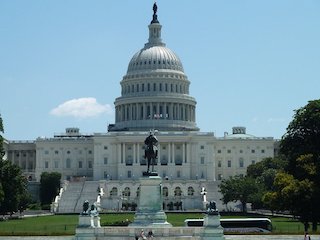Senate Commerce Committee Ranking Member Roger Wicker (R-MS) praised what he calls the strong research and development and science, technology, engineering, and math (STEM) education provisions included in the Senate’s new CHIPS Act of 2022, which is slated for a final vote this week.
Wicker was a key negotiator on the new package, noting that he would oppose any proposal to provide support for semiconductor manufacturers that did not also include significant investments in research and development and STEM education to help the U.S. outcompete China.
“The new CHIPS Act of 2022 creates a comprehensive response to China’s growing technology dominance, which poses a massive threat to our national security,” Wicker said. He called the new provisions “essential if the U.S. hopes to protect our intellectual property.”
The new CHIPS Act will reduce historic disparities in research funding allocations, ensuring more universities can participate in R&D funding from the National Science Foundation. “In order to outcompete China, the U.S. will need to take advantage of the talent, capabilities, and expertise found in the industries and universities throughout America, not just a handful of coastal high-tech centers,” says Wicker.
For example, in 2021 over half of NSF funds went to just seven states plus D.C. Half the states in the country received less than 13 percent of NSF funds, according to the Senator. The new CHIPS Act would help correct this concentration of R&D funding.
By Leslie Stimson, Inside Towers Washington Bureau Chief





Reader Interactions